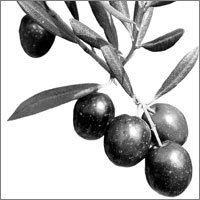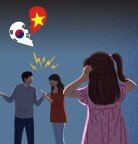Detoxifying? Be Skeptical First

Through an online shopping mall, Mr. Jo, a 35-year-old banker, purchased a beverage set worth of 90,000 won last month, advertising its function of cleansing a liver. He heard about detox therapy from a colleague and intended to try it for himself. However, Jo finally had to see a doctor after having an intensive two-day-long diarrhea bout while he was having the beverage.
The interest in detoxification health approaches--cleansing the poisonous chemicals inside the body--have increased along with a hyped-up well-being lifestyle. The ad saying, Cleaning the liver eases the cleaning of the intestines, is commonly found in detoxification health commercials on the TV and on the Internet.
What Is Detox?-
Detoxification health approaches are ways of getting rid of toxins, which either enter the body or form inside the body. Detox health products also emphasize the detoxifying process of livers and kidneys.
Liver detoxification beverages are the most common product of its kind. The ingredients in these products are olive oil and magnesium sulfate, which are also elements of constipation pills. According to detox product marketers, the beverage will prevent a fat liver by helping to evacuate cholesterol gallstones.
Some people eat charcoal powder of pine trees, considering it as a detox food, based on the belief that it will absorb the toxins inside the body. It is easy to find articles related to the effectiveness of detox products, such as charcoal power, at many online cafes like the following that says, Your stomach will feel fresh once you have had a spoon of charcoal power the morning after you have had greasy food or gone binge drinking.
Those supporters of charcoal powder say that the numerous silts in the powder will absorb and cleanse proteins, fat wastes, and heavy metals in the colon. They also recommend stirring some olive oil into the powder or taking enough water with it to prevent getting constipation.
Medically Unproven-
Modern medicine points out that the definition of toxins is vague. Activated oxygen, known as a cancer-causing toxin, and aging performs some beneficial acts, like sterilizing pathogens intruding into the body. They say it is quite difficult to categorize the subject of toxins clearly.
It is rather harmful for health having a regular constipation pill to cleanse the liver and eliminate the stool in the colon. For a person who does not have serious constipation, it worsens the normal bowel movement and can finally break the bowel system. So the person later will highly likely experience a difficult time of having no effect of those pills when he or she has serious constipation.
The principle behind having charcoal is same with feeding on activated carbon, which is strongly absorbing and adhesive, to a person who has gulped poisonous chemicals. Meanwhile, it has not been medically proven yet whether a daily dose of charcoal for toxins coming through the body little by little in our daily lives would work.
There are some uncooked, intensified detoxification products. They say the buds of thistle and broccoli contained in those products ease the evacuation of toxins inside the body. However, raw food is not subject to health supplementary food examination, so there has been no verification of the effectiveness of those foods.
Exercise Is Best for Detoxification-
Our bodies are equipped with a sort of self-control capacity for harmful materials. The best detoxification health methods are doing adequate exercise and having fruits and vegetables that contain plenty of anti-oxidation ingredients such as vitamins and beta-carotene. Besides, a fat liver can be prevented with a tonic, rather than going through a liver detoxification process.
(References: Professor Yoo Tae-woo from the Department of Family Medicine at Seoul National University Hospital, Professor Park Yong-woo from the Department of Family Medicine at Kangbuk Samsung Hospital, and Professor Gang Jae-heon from the Family Diagnosis Clinic at Inje University Seoul Baik Hospital)
TK Sohn sohn@donga.com







